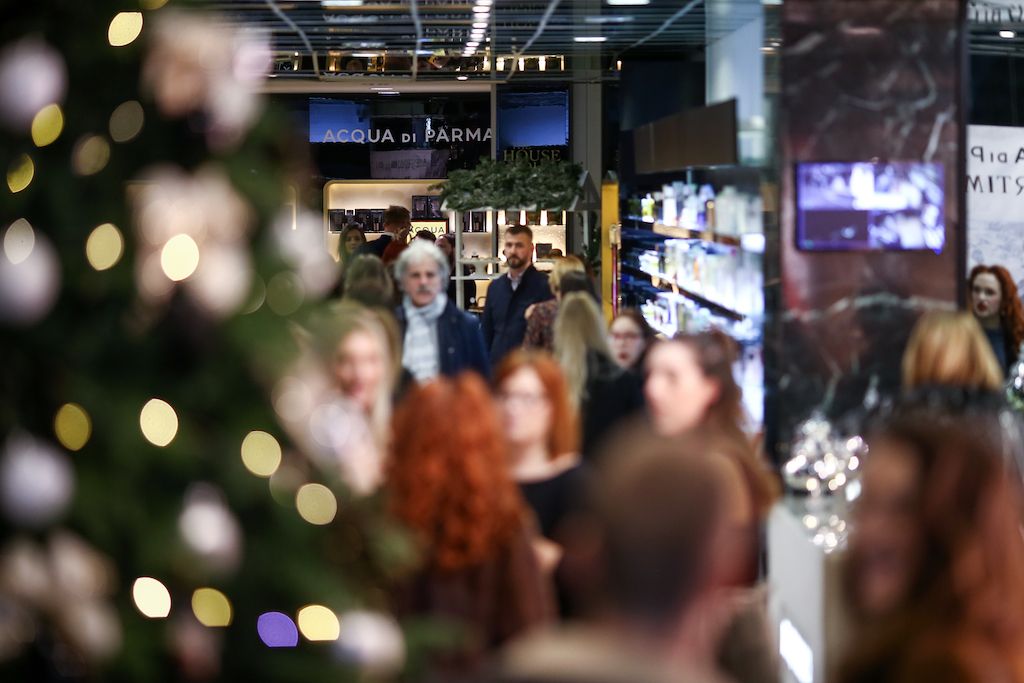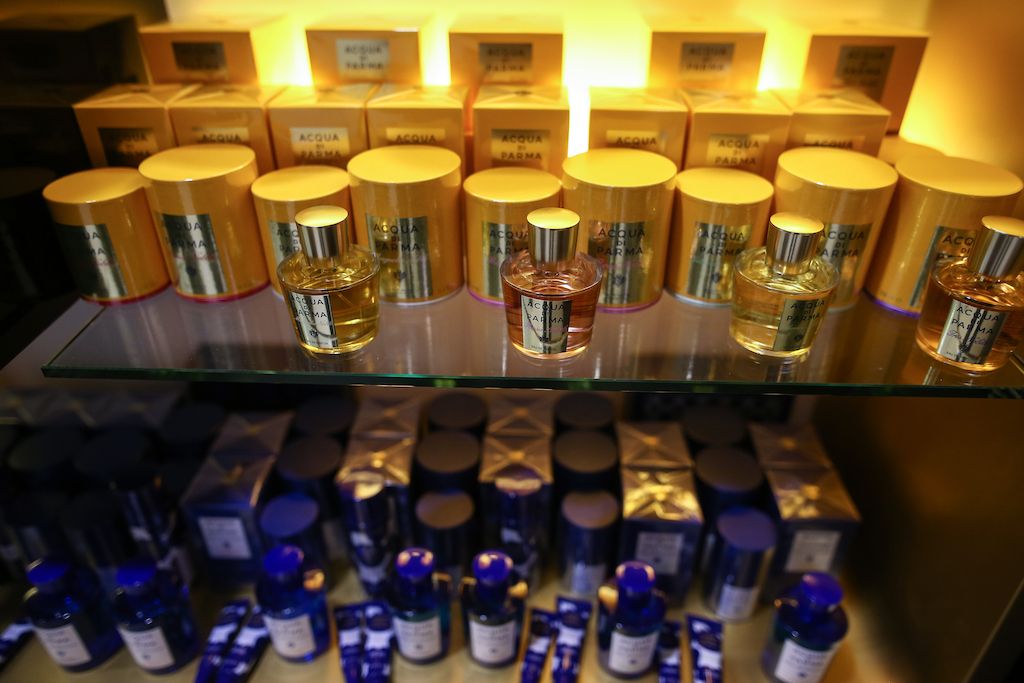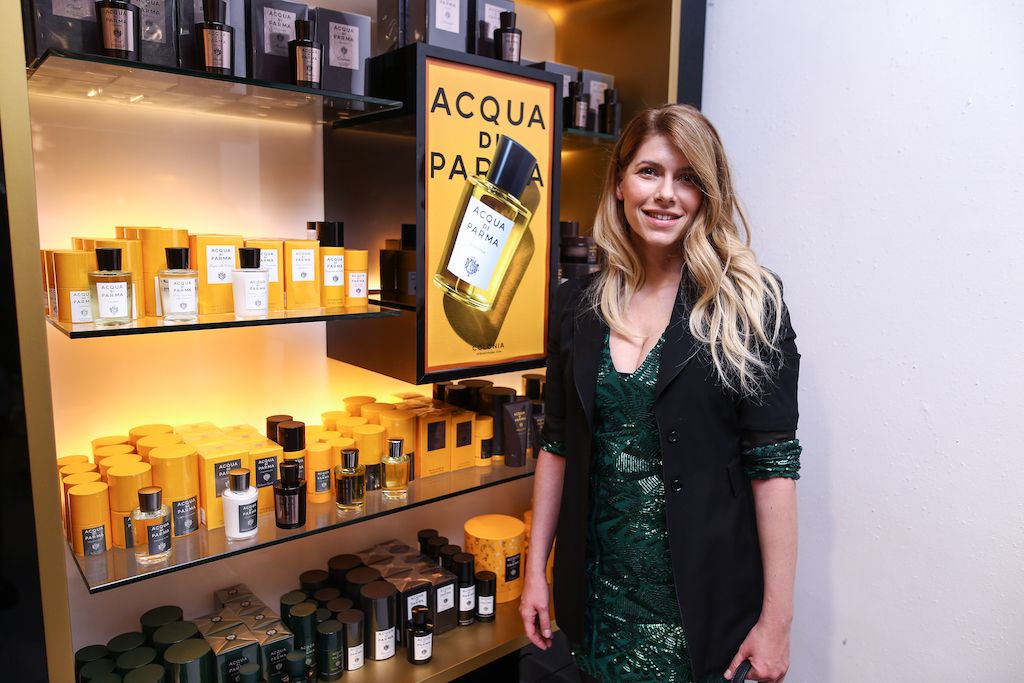PM Andrej Plenković: Finance Minister Zdravko Marić Won't Leave Government
Amid rumours that the finance minister, Zdravko Marić, is set to step down from his position within the Croatian Government as soon as next month, PM Andrej Plenković has been having his refusal to outright deny the claims scrutinised, with some believing that this means Marić's departure was imminent and due to take place in early 2019. It seems however, that Marić isn't going anywhere.
As Poslovni Dnevnik writes on the 9th of December, 2018, HDZ President and PM Andrej Plenković said on Saturday that Finance Minister Zdravko Maric isn't going to leave the government.
"There will be no departure," Plenković told journalists after the he was questioned about whether or not he'd talked to Marić himself about his alleged departure from the cabinet before the end of his mandate, as was being circulated by some media outlets.
The Prime Minister, upon being questioned about the criticisms of controversial SDSS President Milorad Pupovac regarding recent arrests in Vukovar, said that he didn't listen to that press conference, adding that the current government is not interfering with the work of the police or with the work of DORH in any manner whatsoever.
He pointed out, in order to quell people's natural suspicions that "there are no invisible political hands" holding any influence over this process.
When asked about the elections for the European Parliament, PM Andrej Plenković stated that the party would be "almost sure" on their own and that at least five mandates can be expected. "We'll win convincingly in those elections," he said briefly.
Concerning the controversy around the procurement of Israeli F-16 aircraft, Plenković reiterated that everything that the Republic of Croatia did in this process was done systematically, thoroughly, and in fine detail, and that open issues, if there are any, exist solely between Israel and the United States of America, and are nothing to do with Croatia or the part Croatia played in the process.
He confirmed that he visited Zagreb's mayor Milan Bandić was taken to hospital yesterday morning, adding that Bandić claims to be feeling good and that he believes that he will recover and be back on his feet quickly.
Make sure to follow our dedicated politics page for more on PM Andrej Plenković, the Croatian Government, and updates from both domestic and European politics in Croatia.
Aroma of Holidays Hit Zagreb with St. Nicholas Celebration at Martimex Perfumery
December 9, 2018 - The holiday season usually "smells” of lack of time, stress and scrambling to purchase last minute gifts. But for all lovers of fine, niche smells - this somewhat stressful holiday season just got a bit easier if you're in Zagreb.
Thanks to the exclusive Martimex perfumery at Ban Jelačić Square in Zagreb, customers can find all the best niche international brands, including eight new ones - such as Acqua di Parma, Bond no. 9, Tiziana Terenzi, V Canto, Etro, M. Micallef, Montale, and Mancera.
For Saint Nicholas, Martimex decided to offer their guests a dressed up holiday atmosphere to enjoy the many new fragrances with delicious delicacies and lavish decorations.
To begin your fairytale of fragrances this holiday season, you cannot miss Acqua di Parma. This famous brand launched back in 1916 with a small perfume workshop in the center of Parma’s old city, once the aristocratic and cultural center of Italy, which Giuseppe Verdi, Stendhal and Duchess Louise Maria from Austria, Napoleon's wife, visited. Already from your first breath, you will experience Italian tradition and natural ingredients that have won many famous faces - from Ava Gardner, Audrey Hepburn, Cary Grant, and Lane Turner to Kevin Costner, Woody Allen, and Sharon Stone. Today, Acqua di Parma counts 60 fragrances, and at Martimex, you can choose from a variety of scents including the legendary perfume Colonia, boasting the smell of rosemary, lavender, lemon, and jasmine, as well as white musk accords, Bulgarian rose, and amber.
Bond no. 9 brought a dash of New York in Zagreb with the New Bond Street fragrance, which captures the smells of bergamot, pepper, and lily. If you are still a fan of Roman classics, you will not be disappointed by the godlike scents of Dionysius and Aphrodite of the Italian family brand Tiziana Terens, who skillfully combines amber, musk, vanilla, exotic oak and lily.
You will be taken on a renaissance journey by V Canto, inspired by the intriguing story of Lucrezia Borgia, with a fragrant combination of pear, red pepper, bitter orange, lime, and laurel. The Far East is literally in front of you with the Fantastic Oud, Sweet Flowers and Bakhoor fragrances that are signed by the king of the oaks, Montale.
Look for the noble and luxurious ingredients of rare and refined materials in the Mancera Exclusif collection, or fall in love with the scent of rose from Grasse by the French perfumery M. Micallef and, finally, wear the famous Etro fashion house in style, whose passion for traveling and lavish textures shifted to the oriental perfume Amber which smells of rose, patchouli, amber, vanilla, and musk.
Many famous people from Zagreb's public and cultural life attended the Saint Nicholas perfume celebration, including Jelena Perčin, Anja Alavanja, Iris Androšević Pinjuh, Tihana Harapin Zalepugin, Ankica Dobrić, Amar Bukvić, and Petar Ćiritović.
To read more about Zagreb, follow TCN's dedicated page.
ADVENTurous Women of Zagreb: A New Way to Explore the Capital
The Zagreb Tourist Board decided to refresh their internationally-awarded mobile application, Zagreb Be There, for this year’s Advent festivities.
Life in Croatia: Reflections of a Foreign Teenager One Year in Zagreb
December 7, 2018 - There are not many foreign teenagers who grow up in Croatia. TCN is delighted to welcome Mira Maughan to the team, with her reflections on a teenage year in Zagreb to start.
It’s hard to explain why I left London and turned down offers to study biomedicine, instead to move to a country I’d never heard of. A country where an estimated 24,000 inhabitants have left in the last year to live abroad and who continue to leave en masse. But with politics aside, I’m nineteen now and with my one-year anniversary just around the corner, I thought I'd look back a bit on life in Zagreb so far, some experiences and highlights and why I refuse to leave.
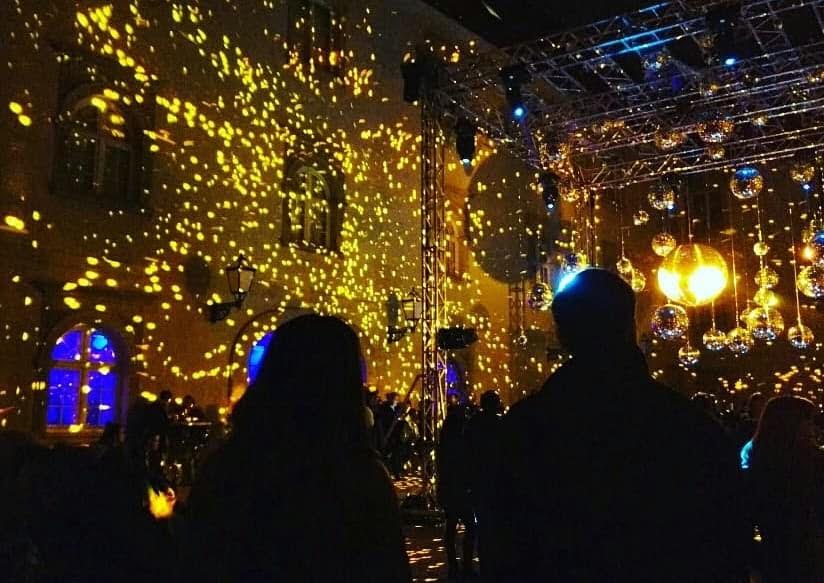
The backstory in short, my family decided to make the move to Croatia to a village to build their own small farm and escape the everyday chaos of London. My mother, a Russian, and my step-father an Australian, chose Croatia as their new home since it happens to fall culturally down the middle (and is just a little cheaper than London). With a strong Slavic and European influence but still quite Western and modern, Croatia is a hub of beauty and diversity, from its language to its climate - and Zagreb is its capital. I followed the family soon after only to find myself moving out of our family home quickly when I managed to land a job in Zagreb. I movedinto a flat with a colleague from my new work. That was where I got a real taste for life in Croatia and the immense change it would bring.
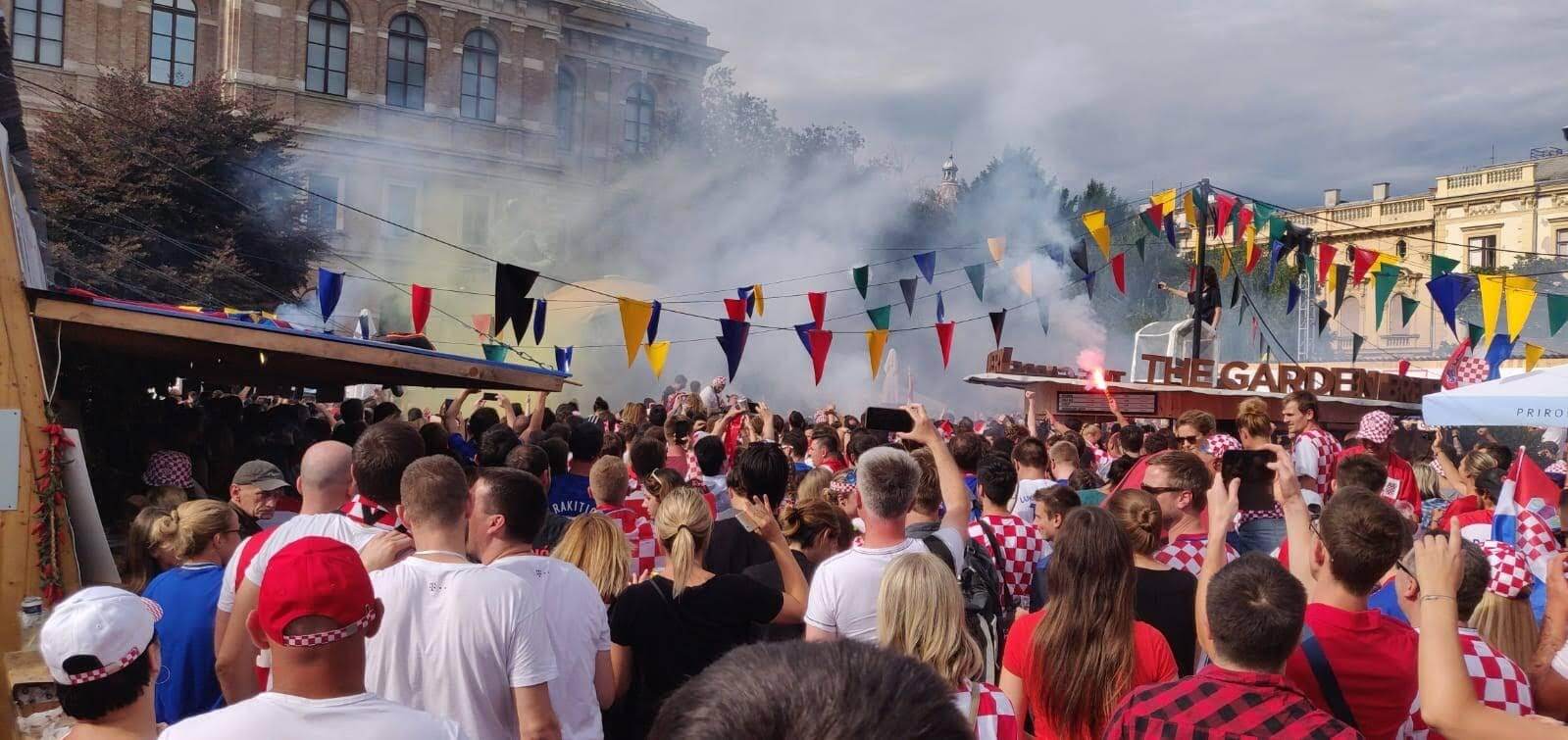
The short answer for ‘what do I think of it here’ would be "I love it" but that always gets followed with the inevitable "why" and then a long pause while I scrounge to piece together all the emotions and feelings I have for this city into a coherent sentence and substantive opinion. I can't explain why, in a city I've no connection to, I have felt so much more at home and a part the greater culture, than in my 'hometown' of London.
Sometimes I'll answer "I love it here more than England" so I can direct the conversation to a list of Zagreb's top ten best qualities, like low crime, clean streets, friendly people, wide open spaces and lots of greenery and most importantly - the whole city is just a tram ride away. For me, life here has been an ordeal in the most positive way and it ties in so deeply with these positives. The Croatian culture at large, and the relationships and experiences I’ve made will be those I’ll cherish for a lifetime.
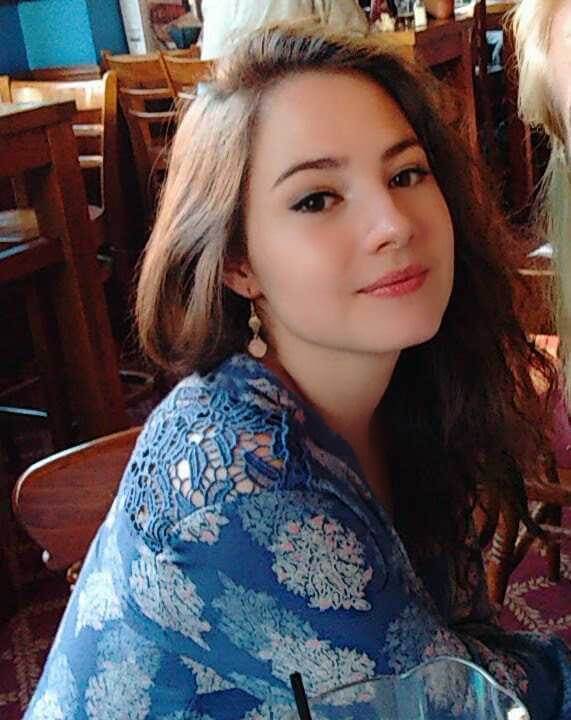
Croatia has a culture centred around socialising (and drinking) making it the perfect place to carve out a social life when you’re new. When I arrive at work, we greet the security guard. When someone leaves the elevator, they exclaim “dovidjenya” to say goodbye to anyone left waiting. When you arrive in a shop, we’re welcomed by the shop assistant, and when work finishes we sip a beer or coffee together in the local café.
There is always interaction going on day-to-day. It’s by no means overwhelming, but its small interaction like this that has pulled me into the community and banished any feelings of being alone in a big city. In turn, this has encouraged me to be more conscious of others, to be more open and outgoing. Little by little each day I felt more like I was a part of the city and it encouraged me to be bolder. I recently met up with a friend from work. She decided to stop by an old café she worked at a few years back. I met her there and was introduced to her old boss and colleagues. Before long we were sat around a table at the back chatting, drinking and laughing. I had no intention of being social beyond meeting a friend to do some necessary Christmas shopping, yet I went home that day with such a positive experience and a café I can go back to for a chat if I know I’m ever bored.
Still, almost 12 months later, I am meeting new people and trying new things. Just the other day, I came home from a games night. I showed up apprehensive and, admittedly, judgmental. But I could see the confidence of the players around me. One guy even exclaimed, "I'm a geek goddammit!" with laughter but there was no weakness to it. I've noticed that about Croatians in general, and in Zagreb a lot. They have pride and carry themselves with confidence. I am speaking in stereotypes, but it is something I'm noticing in more people I meet, making it the perfect environment to bring out the best in a less than confident teen.
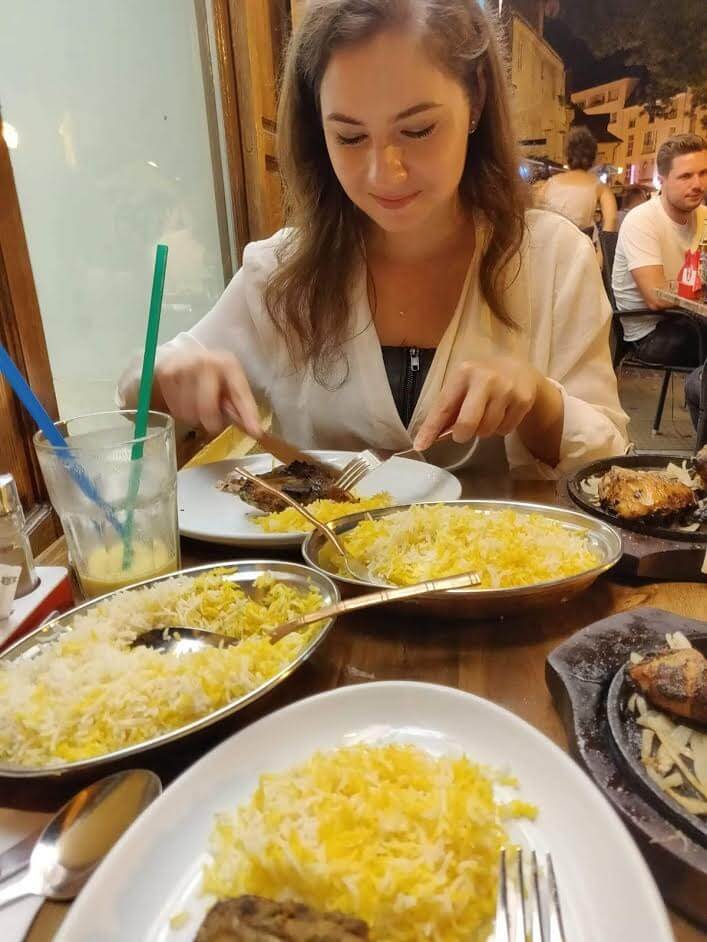
It starts with Zagreb being a small, safe city. I arrived as a scared and self-conscious eighteen-year-old. And while I still do carry these traits from time to time, I can see the change Zagreb and its folk have brought out. With a small population and the outskirts of the city held within a 30-minute tram ride radius, Zagreb was the best place to push me out of my comfort zone and made it very easy to meet people. A brother’s school friend’s older sister invites me out for coffee with a couple of her mates, and before long I’m filling out my calendar with New Year’s Eve plans and casual meetups.
My favourite memory to tell is the story of New Year’s night. I ended up getting a last-minute text from the friend-of-a-friend I met for coffee once. I was nervous and cautious but when I arrived it was instant conversation and laughter. We drank in the park playing games and chatting. We arrived too late to the club and waited outside while a member of our entourage tried to chat up the security guard to get us inside. It failed, but she did snap a nice picture with us all and we joked outside while we greeted the new year. Later we wandered down the streets and the same lad managed to sweet talk some people having a house party and we were warmly invited in.
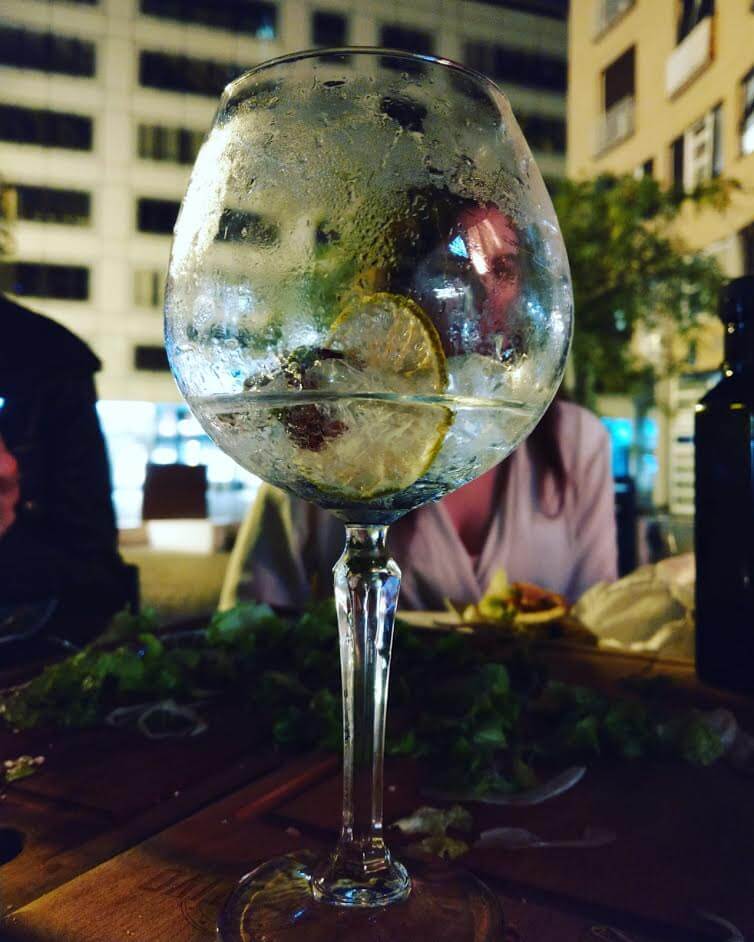
We were all complete strangers but we danced and laughed (to turbo folk no less) and went home as friends. It may sound reckless or at the very least unsafe, but the calmness and naturalness of the people and city made it magical.
While my year abroad has definitely been far from easy, and as much as I boast about happy times here, of course there are equal lows. What I did learn though, are that these lows often come from within, from personal struggles and no amount of travel will change that. Not everyone you meet will be life-changing and day to day life will always be, well, day to day life. Small struggles will need to be overcome and monotonous tasks need to be done. But I hope to inspire others to make a move abroad, even if better planned and thought through. Managing on your own in a foreign country definitely brings a new kind of confidence and the life lessons learned will be those you’ll be forever grateful for. If you can handle the Croatian bureaucracy system with limited knowledge of Croatian or law, for example, you can handle just about anything the world throws at you.
Mira will be contributing a regular column for TCN, Life as a Teenager in Zagreb. We look forward to the first installment. In the meantime, follow Total Zagreb for the latest on Croatia's capital.
British Culinary Star Jack Stein Films 'Inside the Box' TV Show in Zagreb
The Croatian National Tourist Board, in cooperation with the British-Australian production, organized the first Food Box Day this week at the British Square in Zagreb. British chef Jack Stein was the special guest.
Prosecution Appeals against Zagreb Mayor Acquittal
ZAGREB, December 7, 2018 - The anti-corruption agency USKOK has appealed against Zagreb County Court's acquittal of Zagreb Mayor Milan Bandić and his associates Ivan Lovrić and Zdenka Palac of the charges that they favoured the civil society group In the Name of the Family by allowing that NGO to use city stalls, free of charge, to collect signatures for a referendum on changes to the election law, thus defrauding the city budget of 308,000 kuna.
USKOK has appealed against the non-final ruling of October 19 citing significant breaches of the Penal Code and saying that the reasons stated in the ruling are unclear and, to a considerable degree, contradictory.
USKOK also believes that the county court had erroneously determined facts in the case and that it wrongly concluded that there was no evidence that the accused had committed the crimes they were charged with.
USKOK has suggested that the Supreme Court find the accused guilty or annul the county court ruling and order a retrial.
Before the end of the trial, USKOK amended its indictment to charge Bandić with not only abuse of office but also with influence peddling involving Palac, director of the city company operating farmers markets.
At the same time, the charges against Lovrić were changed and he was eventually not charged with abuse of office but with abetting and aiding abuse of office, while the charges against Palac remained the same.
Aside from this case, Bandić has been indicted in one more case, dubbed Agram, which involves charges of defrauding the city and state budgets. Bandić pleaded not guilty at the start of that trial, too.
For more on the Zagreb mayor, click here.
Driving in Croatia: Zagreb Police Announce Another Action
Driving in Croatia is always a pleasure. From the famously smooth roads, even in the most rugged and mountainous areas, to taking in the truly diverse scenery the country has to offer from coast to continent, a road trip through Croatia is undoubtedly a must do when spending any length of time here.
Despite the joy of driving on such perfect roads and enjoying the incredible bio-diversity of the land, winter is well and truly on its way and along with freezing temperatures and snow, it intends to bring some hefty fines and a stronger police presence across the country.
The police have already announced a few new sets of high fines and multiple actions in which the ''hunt'' will be on for those not wearing seat belts or using their phones while driving, and the Zagreb police are upping their game once again as the cold begins to bite in continental Croatia.
As Poslovni Dnevnik writes on the 6th of December, 2018, in the area governed by the Zagreb police administration, a preventative action is set to take place. The Zagreb police announced that the action will be implemented this weekend.
From the 7th to the 10th of December, Zagreb police officers will carry out a preventive action directed at enhanced vehicle and driver supervision, the general aim of which is to prevent and sanction the most serious violations, known commonly all over the world as the four major killers on the road.
These offenses are alcohol consumption while driving, speeding, not wearing a seat belt, and the improper use of mobile phones and similar devices, as well as an array of other offenses which frequently contribute to the occurrence and the often tragic consequences of most traffic accidents.
Make sure to stay up to date with our news page for more. If it's just Zagreb you're interested in, make sure to follow Total Zagreb for everything going on in the Croatian capital city.
Ivica Todorić: I'm Entering Politics Because Croatia is in Awful Position
As 24sata writes on the 5th of December, 2018, Ivica Todorić, who was recently released from Remetinec prison following his eyebrow-raising payment of a million euros in bail, which he said was paid by friends, has decided to become politically active. On Wednesday, the 5th of December, 2018, he announced his political engagement once again and used the opportunity to criticise Prime Minister Andrej Plenković and the Croatian Government, according to a report from N1.
We've translated his statement in full below:
''Dear all,
Today, following two years of Andrej Plenković's government, the Republic of Croatia is socially and economically completely destroyed, devastated, we have chaos and a dictatorship, we're seeing the destruction of institutions every day, we're the worst member of the EU, we're last on the list by all indicators, we're at the very bottom!
Today, the Republic of Croatia isn't a country of knowledge, it isn't a country [which respects] the rule of law, it isn't a country which cares about its demographic status, the economic position of its citizens, or the state itself.
At the same time, two years have passed since the launch of the plundering of Agrokor, a monstrous criminal project unseen in history in this part of the EU.
That is precisely the best example of corrupt antinational power, which has plagued the future of the citizens of the Republic of Croatia and has thrown the state on its knees.
I fought alone, and I'm still fighting [armed] with the truth and the facts about the crimes which were carried out over my company, my associates, and over me.
Throughout my life I've been giving to my homeland to Croatia, through the Agrokor project, building a modern, competitive industry that eventually became the largest in this part of the EU.
But now I look upon this dictatorship of Prime Minister Plenković, who pitilessly continues to inflict tremendous damage upon the Republic of Croatia, and who is destroying our homeland and its future.
Exactly because of the desire to change this catastrophic position of the Republic of Croatia, I decided to become politically active!
We in the Republic of Croatia need to gather all the potential of every individual to make the best use of our national wealth - forests, water, land, and our sea, in order to realise our national interests in the most functional way.
The Republic of Croatia must get started and become a country of knowledge that respects the rule of law. Severe, serious reforms and investment cycles need to be initiated literally overnight as [otherwise] it will be too late. Croatia needs to be transformed into the construction site for the future of our children and all citizens.
I'm sure that we will eradicate this corrupt, incompetent, dictatorial authority - to ensure a better future for our homeland of Croatia and for our children.
With respect,
Ivica Todorić''
Make sure to follow our dedicated politics page to stay up to date with the Croatian political scene and all of the former Agrokor boss' political moves.
Davis Cup Trophy to be Exhibited in Zagreb For First Time in 13 Years
The Davis Cup trophy will be displayed in Zagreb for the second time!
Media Servis Meets Peter Szijjártó, Hungarian Minister of Foreign Affairs and Trade
December 5, 2018 - Media Servis is an information agency that began broadcasting radio information programs in 2003. Today, they specialize in producing radio programs, including informative, political, entertainment, sports, and other programs.
On Tuesday, Media Servis' interview of the week hosted Minister of Foreign Affairs and Trade of Hungary, Mr. Peter Szijjártó. The interview was held on Tuesday evening in the Residence of the Hungarian Ambassador in Zagreb before the gala dinner.
You can find the interview below in its entirety.
On the occasion of the summit of the Central European Initiative, Hungarian Foreign Minister Péter Szijjártó stayed in Croatia yesterday. On that occasion, he selected Media Service as the leading Croatian news agency for an exclusive interview. He commented on the bilateral meeting of premiers Andrej Plenković and Viktor Orban, relations between the two countries, the situation around INA and MOL, the return of Zsolt Hernadi to the Interpol arrest warrant, the LNG terminal and the migration crisis. Before the gala dinner with the Croatian state top, Andrea Barać interviewed Péter Szijjártó at the Hungarian Embassy.
I'm Andrea Barać and our guest is the minister of foreign affairs and trade of Hungary Mr. Peter Szijjártó. Welcome.
Good evening. Thank you for the opportunity.
Let's start with the today's meeting of our prime ministers Plenković and Orban. Orban's last official visit was seven years ago. Are you satisfied with today's meeting? Was it an opportunity to remove the splinters from under the nail as Orban said.
Look we're happy that this meeting finally took place. We're absolutely unsatisfied with the state of play of our relations. We're neighboring countries to each other, we should be natural allies, that is determined by history, but for some reason, our relationship is much less developed than it could be and as it should be. So if prime ministers of neighboring countries do not pay official visits to each other's countries for six, seven years that's very telling. That's why today's meeting was very important, to break the ice in this regard. Everyone knows what is the elephant in the room. Everybody knows that our relationship regarding trade, regarding investments, regarding minorities, regarding people to people contacts are fine. But this energy issue, let's call it like that, in a simplified way of course somehow acts as a shadow on the whole relationship and regardless of possible forward progress on some issues, on some areas of cooperation this shadow puts a bad feeling on the relationship.
Are you also unhappy, like Orban, about this situation?
We're unhappy with the situation because this relationship could bring a lot more benefit to both countries if this issue wasn't there. Imagine, we have a trading volume around 2,3 billion euros annually. Last year there was an increase of 19 percent. Our people to people contacts are fine, if that wasn't the case then Hungarian tourists wouldn't come to this country in such a huge volume. Until September we've had 5 hundred and 75 thousand Hungarians visiting Croatia which is more than the entire year 2017. Hungarian people spent more than 3 million nights in Croatia until the end of September which is already more than the entire year of 2017. Our minorities are satisfied with their situations. We've had the representatives of Croatians living in Hungary in our delegation. Your prime minister had the representatives of Hungarians living in Croatia in his delegation, this is much more than telling. It assures us that the situation of the minorities is absolutely satisfied that was underlined by the two gentlemen during the plenary meeting today. When it comes to investments, OTP bank, the number one Hungarian bank is now becoming the fourth strongest player in your banking market. These things look good.
What about bad things?
Regarding energy. We could have a much quicker and much more efficient forward progress if there was more let's say readiness or mutual understanding in this regard. You know Hungary is pretty much dependant on gas imported from Russia and we're looking for certain opportunities to diversify our sources and roots.
When you mention gas. Orban said today that the main reason we should cooperate is the price of gas and if we build this LNG terminal in Krk which price would be acceptable for you to ensure cooperation?
If we take a look at the current price which was determined by the open season procedure regarding the hopefully established LNG port on the island of Krk than that price is 20 percent higher compared to the price of gas we're buying from the Russian pipeline gas and 20 percent is too much. When we speak about the need for diversification we think about various scenarios. For example, American and Austrian companies are planning to exploit gas from the offshore gas fields in the Romanian territory in the Black Sea. We're negotiating with Slovenia about building an interconnector between two countries through which LNG ports in Italy would be accessible. We have a pipeline connecting us to Slovakia through which certain northern gas sources are accessible as well. For us, this is an issue of diversification and this is a matter of price. We hope that we'll find a satisfactory solution. Your prime minister authorized your minister of environmental protection and energy, mister Tomislav Ćorić, and I'm authorized by my prime minister to carry on these negotiations and I'm hoping we'll find a solution, but price matters. You have to understand that when you spend the taxpayer's money on supplying your country's energy demand you have to care about the price pretty much.
Hungary has withdrawn the block on Croatian entry into the OECD. Why did you make that decision?
We're interested in having a good relationship with all the neighboring countries. We understand that the better relationship we have with our neighbors the stronger we are and our situation is better. And in our interest is that our neighbor is successful as well, because more successful our neighbors are, the more successful we are. And we understood that your endeavors to enter OECD are very strong. For us, your economic success is of interest and that's why we decided to support your entry into the OECD as we have made a similar decision regarding Romania as well.
Your media reported that Hungary was really unsatisfied with our government's stance regarding MOL and Zsolt Hernadi. What's your point of view? Were you angry at some point when Hernadi returned on Interpol's red arrest warrant?
We consider this a legal issue, and we never interfere into legal issues. In order to be able to rebuild a good relationship, we have to separate political from legal issues. So jurisdiction has to do its own job without any kind of influence or interference from any government. On the other hand, when it comes to issuing of MOL and INA we consider it a corporate issue, as a company issue.
Do you agree with Orban that Croatia should redeem INA's shares from MOL?
I generally agree with him of course and in this concrete issue I absolutely agree with him, he represents the position of the government. So we have to understand that this MOL INA relationship did not work out or hasn't been working out so far very well. If it turns out, and it seems to me it has already turned out that there's no way of successful cooperation between these two companies, which happens, that can happen. It can be considered a usual phenomenon in international business. When such things happen it's better to divorce. In this regard, we as a Hungarian government are not part of the debate because this debate is going on basically between the Croatian government and the Hungarian company called MOL. We keep it at the corporate level and I think it's much better for everyone.
Let's continue now with the summit of Central European initiative. What do you expect from this summit and tomorrows plenary session and which subjects will be in Hungary's focus?
Regarding CEI we think it's a very important instrument to promote enlargement of the European Union. Because both Croatia and Hungary are very sensitive to the issues happening in the so-called Western Balkans region or the southern part of Central Europe let's put it this way. We both, Croatians and Hungarians, understand very well the importance and impact of Western Balkans on Europe. And we both understand very well the difference between secure situation and calm situation in the Western Balkans and the contrary. We both understand very well that the integration of this part of the continent to the European Union is vital when it comes to economy and security, both. Unfortunately, we have to understand that there's no such sensitivity in Western Europe, no such understanding. We, as Central Europeans have to push for the enlargement procedure to be accelerated. Because this is in our interest. We'd rather use the CEI as an instrument to promote enlargement of the European Union.
What about the migration crisis?
Migration crisis is definitely the most serious challenge European union ever had to face. And again, we living in this neighborhood understand it very well because we remember when 400 thousand illegal migrants marched through Hungary's territory, violating our border, disrespecting our culture, our rules, our regulations, our way of life. Threatening people, behaving in a very undisciplined way, attacking our police. We don't want to see these events repeated in Hungary again. We see pictures on television, hear the news on the radio about the situation at the border between Croatia and the Bosnia and Herzegovina. We respect you for protecting your external border and we think this is a crucial issue. So if Europe is not able to regain the ability to control its borders then Europe will be under an enormous security threat in the future. That's why we're happy to cooperate with all countries in the Western Balkans whether they're in the EU or not to help them protect their external borders. Because this is the key. For example, Hungary considers it a matter of sovereignty that only we can make the decision who we allow to enter our territory and who we don't allow. We want to maintain our right to make the decision with who we would like to live together on our own. Not to be influenced by others and the decision shouldn't be made by anyone else, just us.
How did you react when the European Parliament voted for sanctions for Hungary because they claim you violated European values?
That report was basically revenged on behalf of the European Parliament. Revenge on our migratory policy since we proved that the basic principles of European migratory policies were based on lies. Bruxelles said that it's impossible to stop migration we have proved that it's possible to stop it. Bruxelles said that migration is by definition good and I think the time has proven that migration is extremely dangerous when it comes to terrorism and para societies. There's a revenge against us this is number one. Number two this report is basically a collection of lies, qualified lies. 69 allegations have been put in this report against Hungary, out of which 13 have already been sorted out between the European Commission and the Hungarian government back in 2011 and 2012. There are 19 issues on which the discussion has been ongoing between the Commission and the Hungarian government as it is the normal way. There are 37 perceptions, lies, we know very well about my country. Like the lack of freedom of media which is a lie. Lack of freedom of speech which is a lie. It even says antisemitism is on the rise, and the Federation of Jewish organizations sent a letter saying it's not true. We have to understand that if you go against the mainstream in the European Union if you go against the mainstream in order to preserve or maintain the security of your citizen than you'll be attacked.
You mentioned problems with illegal migrations. Can you tell me what you find problematic in the UN's Global compact of regular migrations? Our government is supporting it.
I know. You know I was the only foreign minister to take part in all four intergovernmental meetings in New York preparing the Global compact on migration. All other countries were represented by the permanent representative in New York or some other diplomats working in New York embassies. I was the only one so I read all the versions of the text from the very beginning to the very end and I have to tell you that this Global compact will repeat the similar kind of mistake that the European Union committed with its migratory policy. This Global compact on migration portrays migration as a fundamental human right which is not true, which is a lie. This Global compact on migration portrays migration in a very unbalanced and biased way saying that this is basically the best thing that could happen to humanity and says nothing about the security risks. Says nothing about the right of the people to have a safe and secure life in their homes. It encourages further migratory flaws as it says there should be training carried out for those who want to leave their homes. It says we should carry out campaigns "Why migration is positive". It says that all migrants should be provided with similar kind of services just like local citizens. It says that data gathered during social service to this people must not be shared with the immigration authorities. This Global compact on migration says that there shouldn't be any legal differentiation between migrants, legal and illegal. This is terrible from the European perspective and as time goes by you'll see more and more countries deciding against this Compact. I think it's parallel with more and more people reading it. We've said from the beginning that this is a really dangerous document and the impact of that will be even bigger than the impact of a forced and failed migratory policy of the European Union because this is a global thing.
What if something happens to Hungary and your people want to migrate somewhere in the future and if some other country has the same point of view as you. Would it be a problem for you?
What kind of scenario do you mean?
Hypothetically something happens, war for instance and your people want to migrate somewhere else.
I would rather avoid speaking about these kinds of scenarios which hopefully will never happen. But what I can tell you is the following because I think I understand the principle of your question. So our policy is that we have to make sure that everybody who has to flee or escape from his or her home because of war, for example, should be treated in a proper way in the nearest place to their home. That's why we're pushing for more European Union support for Lebanon, Jordan, Iraq, even Turkey because these countries are located around war-torn areas. These countries took care of refugees, of people who had to escape from their homes. We think that we have to make sure that people who had to escape should be helped and stay as close to their homes as possible so that when the conflicts that forced them to flee is over they can return. But we don't agree or accept any kind of policies which help people to cross six, seven, eight peaceful countries violating those borders just because they have the intention to get to Germany. For example, people from Serbia arrived in Hungary during 2015, or Croatia. Then we raise the question what's the reason for anyone to violate a border between Serbia and Hungary or Croatia and Hungary. Is there a war in Croatia? Thank God no. Is there a war in Serbia? Thank God no. Is anyone's life in danger in either of these countries? Thank God no. So then the question is why should we allow them to cross the border between two peaceful countries in an illegal way. That's why we have a program called Hungary helps. With this program, we bring help to communities to stay close to their home or stay at home and get stronger. We assist Christian communities in the Middle East so they're able to stay at home because their leaders come to us and ask us not to encourage their people to leave their homes because that way we basically help the terrorist organization that has goals to eliminate these communities. Instead of encouraging them to leave their homes let's help them so they're able to stay at home. This is our policy. Don't bring problems where there are no problems and bring help where it's needed. That's the basic principle.
We should finish soon. Can you tell me about Vichegard 4, V4. What's the present status and future of V4?
I can tell you that this is now the tightest and the most effective alliance within the European Union with the very deep, let's say historic basis. So this is a cooperation that's not institutionalized and maybe the effectiveness is the consequence of that. All four countries know that if we say something together it's much louder and much stronger than if four of us spoke one by one. I don't think Vichegard was ever as strong as it is currently and migration was definitely an issue where we worked together closely. Now economic cooperation is picking up and we are working closely together on the next multiannual financial framework, and we're happy with the external cooperation. We have this formats like Vichegard 4 plus and in this format, we worked together with Croatia as well.
And the so-called Three seas initiative. What's Hungary's current position?
We're supportive of the initiative but we think it would be important to have a direct outcome, some concrete outcome of this cooperation. I think infrastructural developments would be key here. Our region is very poor on the north to south infrastructure due to historic reasons. Here pipelines, electricity grids, highways, railroads usually run from east to west because this is the outcome of history. I think if Three seas initiative can boost or accelerate north to south infrastructural developments that would be great and we're supportive of that.
Mr. Szijjártó thank you for this conversation.
I appreciate the opportunity, thank you.
To learn more about politics in Croatia, follow TCN's dedicated page here.

